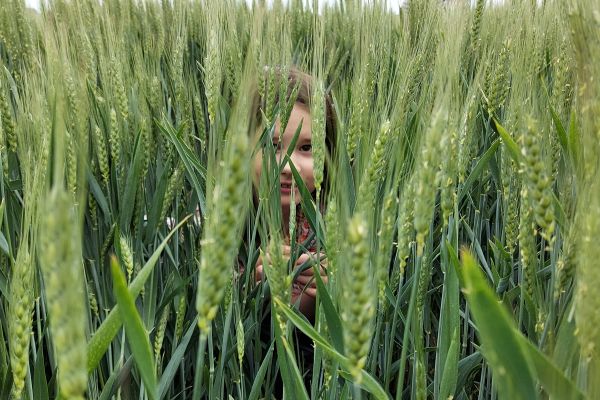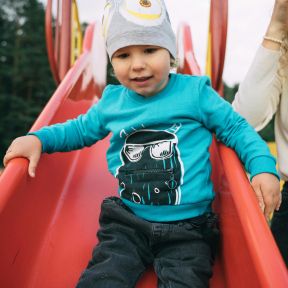Understanding Child Development
Human development is influenced by, but not entirely determined by, our parents and our genes. Children may have very different personalities, and different strengths and weaknesses, than the generation that preceded them. Caregivers should pay attention to their children's distinct traits and the pace of their development, and not assume that the approach to parenting that worked for their mothers and fathers will be equally successful in their own families. Parents, and the home environments they create, can also have an important influence on a child's development; in fact, a child's home environment can affect the ways that certain genetic traits express themselves, or if they will at all. Caregivers who have a consistent approach, who are warm, and who can give children a sense of security, generally have the most positive influence on a child's development; meeting a child's physical and dietary needs are also essential as research finds that childhood neglect can disrupt development, perhaps even more than abuse does. But parents are far from the only influencers in a child's life: Siblings, grandparents, neighbors, peers, celebrities, and policymakers all may contribute to who a young person becomes as well.
Healthy development can be upended by abuse and neglect, which may disrupt cognitive and language development and socialization and particularly hamper a child's ability to develop trust or self-esteem, or to form healthy relationships with others. The effects of abuse or neglect often linger for years, but they alone do not determine a child's future. Many children raised in difficult environments develop resilience and grow to thrive as adults.
For more, see Adverse Experiences.

The speedy physical and psychological changes that children undergo from birth through adolescence can leave parents and caregivers wondering how best to support them. The process of child development includes everything from sensory awareness and fine motor skills to language acquisition and socialization. Parents and medical professionals typically rely on developmental milestones, such as when a child learns to speak or read, to track their growth relative to their peers. These milestones are important markers but parents must keep in mind that every child develops at their own pace, and while one may take their first steps earlier than most, or say their first words later than most, neither is likely to affect their ultimate capabilities. However, when the benchmarks suggest that a child may be significantly delayed, it is important to consult a doctor who can identify developmental disorders and begin treatment as early as possible. For more, see Developmental Disorders and Delays.
It is widely believed that a child's personality and intelligence are "locked in" by age 3, but there is no deadline for human social or cognitive development and the brain develops throughout one's life. But decades of research in developmental psychology, pediatrics, and neuroscience have converged on the conclusion that the first five years are especially critical. During these years, children begin to explore their environment, learn verbal and reasoning skills, socialize with others, and, eventually, take steps toward asserting independence from their family. Other research has led to expert guidance on how parents and caregivers can manage a child's expectations, and their own, and nurture their best qualities. For more, see Cognitive Development and Social Skills.
Children have varying physical and emotional needs, depending on their age, personality, and developmental stage. Over the past several decades, the age of puberty has been dropping for many young people, bringing an increasingly early end to childhood. Both genetic and environmental factors influence the onset of puberty, and observers believe that its early onset may to some degree reflect the stresses a child has experienced.
For more on specific stages of development, see:














